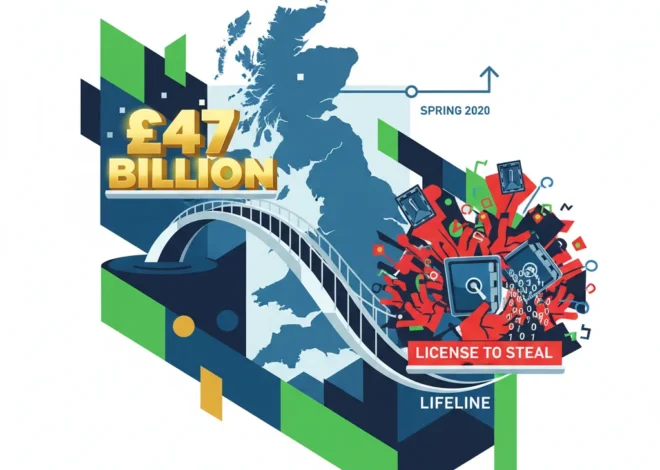
Beyond the Bus Stop: Analyzing the Economic Fallout of the UK’s Youth Transport Decision
A Policy U-Turn with Economic Consequences
In a move that has sparked considerable debate, the UK government has officially rejected a recommendation to provide free bus travel for individuals under the age of 22. The proposal, originally put forth by the Commons Transport Committee in August, was envisioned as a way to boost youth mobility, improve access to opportunities, and alleviate the growing financial pressures on young people. While the government’s decision is rooted in immediate fiscal concerns, its ripple effects extend far beyond the budget sheet, touching upon core principles of economics, long-term investment in human capital, and the very fabric of our national economy.
At first glance, this appears to be a straightforward transport policy issue. However, for investors, finance professionals, and business leaders, it serves as a critical indicator of the government’s current fiscal priorities and its philosophy on social investment versus short-term savings. This decision is not merely about the cost of a bus ticket; it’s a complex case study in public finance, revealing deep-seated tensions between immediate expenditure and long-term economic growth. It raises fundamental questions about how we value and support the next generation of workers, consumers, and innovators who will ultimately drive the future of the UK’s stock market and overall economic vitality.
The Fiscal Brakes: Unpacking the Government’s Rationale
The government’s rejection is primarily an exercise in fiscal prudence. In an economic climate characterized by high inflation and pressure on public spending, introducing a new, large-scale subsidy is a difficult proposition. The direct cost of funding free bus travel for millions of young people would be substantial, requiring either new revenue streams or cuts in other essential services. According to a report by the IPPR, a similar scheme in London, which offers free bus and tram travel for under-18s, costs Transport for London approximately £175 million per year. Extrapolating this nationwide for an even larger age group would undoubtedly run into the high hundreds of millions, if not more.
From a classical economics perspective, the government is attempting to avoid adding further inflationary pressure to the economy. Subsidies, while beneficial to recipients, represent a significant fiscal outlay that can contribute to budget deficits if not carefully managed. For investors watching the UK’s financial health, a commitment to fiscal discipline can be a reassuring signal, suggesting a stable and predictable environment for the stock market and banking sectors. The decision reflects a prioritization of balancing the books today over a speculative, albeit potentially high-return, investment in the future.
An Investment in Human Capital: The Hidden ROI of a Bus Pass
While the cost is tangible, the counterargument frames the policy not as an expense, but as a crucial investment in human capital—the engine of any modern economy. Limited and expensive transport is a significant barrier to opportunity. For a young person, the ability to travel freely can be the deciding factor in accepting a job offer, enrolling in a further education course, or accessing an apprenticeship. By removing this barrier, the government could unlock a cascade of positive economic outcomes.
Consider the long-term returns: a more mobile youth population leads to a more flexible and responsive labour market. Businesses gain access to a wider talent pool, and young people can pursue opportunities based on merit and ambition, not just their postcode. Research from the Social Mobility Commission consistently highlights that access to transport is a key determinant of life outcomes. A more skilled and employed populace translates directly into higher tax receipts, reduced welfare dependency, and increased consumer spending—all powerful drivers of GDP growth. In the language of finance, the “Net Present Value” (NPV) of this investment could far exceed the initial outlay, though its returns are dispersed over decades.
The Personal Finance Burden on Generation Z
Zooming in from the macroeconomic to the microeconomic, the impact on the personal finances of young adults is immediate and severe. For someone earning minimum wage, the cost of a daily or weekly bus pass can consume a disproportionate share of their income, crowding out savings, debt repayment, and even essential spending. This financial strain at a formative age can have lasting consequences on an individual’s financial health and their ability to participate in the wider economy.
To put this in perspective, let’s examine the financial trade-offs. The money spent on transport is money that cannot be channeled into more productive uses, such as opening a first investment account or building an emergency fund. The burgeoning world of financial technology and fintech apps has made micro-investing in the stock market more accessible than ever, but it requires disposable income—something that is eroded by high essential costs like transport.
The table below illustrates the potential financial burden and the opportunity cost associated with transport expenses for a young person working full-time on the National Minimum Wage for 18-20 year olds (£8.60/hour as of April 2024).
| Metric | Weekly Figure | Annual Figure |
|---|---|---|
| Gross Income (37.5 hrs/week) | £322.50 | £16,770 |
| Estimated Weekly Bus Pass Cost | £20.00 | £1,040 |
| Transport Cost as % of Gross Income | 6.2% | 6.2% |
| Potential Annual Investment (Opportunity Cost) | – | £1,040 |
This £1,040 per year is not an insignificant sum. Invested in a simple stock market index fund, it could be the start of a lifelong habit of saving and wealth creation. The government’s decision effectively delays or denies this opportunity for many, reinforcing a cycle where financial mobility is hindered by a lack of physical mobility.
Sunshine and Spending: Is the UK's Retail Surge a True Economic Dawn or a Weather-Driven Mirage?
A Missed Opportunity for Fintech and Blockchain Innovation?
Beyond the immediate economics, this decision also represents a missed opportunity to leverage cutting-edge technology to solve a public policy challenge. Had the government proceeded, the implementation of a nationwide free travel scheme would have been a landmark project for the UK’s world-leading financial technology sector.
The logistical hurdles are significant: how do you verify eligibility for millions of users in real-time? How do you prevent fraud? And crucially, how do you create a system for accurately and efficiently reimbursing the thousands of private bus operators across the country? The answer lies in fintech and, potentially, blockchain technology.
Imagine a system built on a secure digital identity framework. A young person could have a verified credential on their smartphone, managed via a secure app. When they board a bus, a simple tap would authenticate their eligibility. On the back end, this is where the innovation happens. A decentralized ledger, or blockchain, could be used to create an immutable and transparent record of every journey. This would provide a perfect audit trail, allowing for automated, near-instantaneous settlement of payments from the government to the bus companies. This application of blockchain would solve issues of trust and administrative overhead, while advanced fintech payment gateways, a cornerstone of modern banking, would handle the complex flow of funds. This would have been a powerful, real-world application of financial technology in public service delivery, showcasing UK innovation on a national scale.
Conclusion: The Long Road Ahead
The government’s decision to reject free bus passes for under-22s, as recommended by the Commons Transport Committee, is a multifaceted issue that transcends simple transport policy. It is a declaration of fiscal strategy, a statement on social investment, and a reflection of the difficult trade-offs inherent in modern governance. For the financial community, it offers a clear signal of a government prioritizing short-term fiscal consolidation. However, it also raises critical questions about the long-term economic vision for the country.
By forgoing this investment in youth mobility, we may be saving money on the national balance sheet today, but we are also potentially suppressing future economic activity, limiting the potential of our workforce, and delaying the financial empowerment of a generation. The path not taken was one that could have unlocked human potential, spurred innovation in public service fintech, and ultimately generated a return that would be measured not just in pounds and pence, but in the enhanced prosperity and dynamism of the entire UK economy.
Beyond the Shopping Cart: What Gold, Tech, and a Sunny Summer Tell Us About the Real Economy


